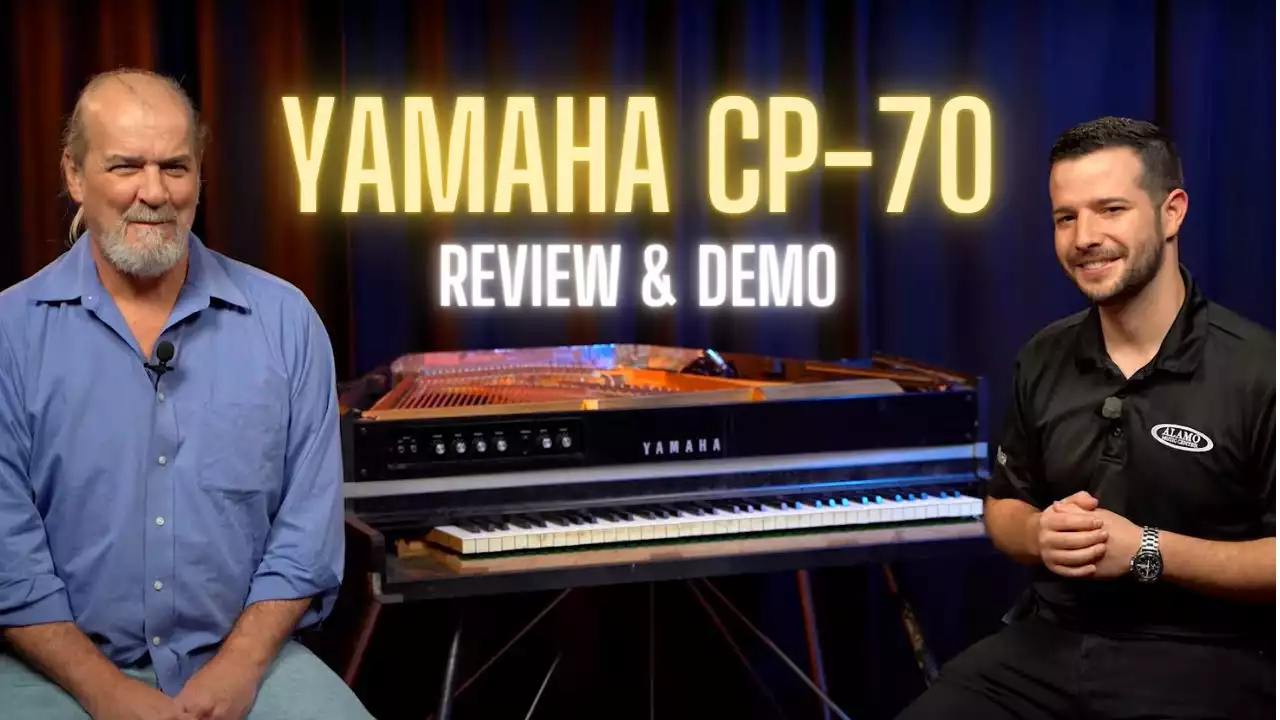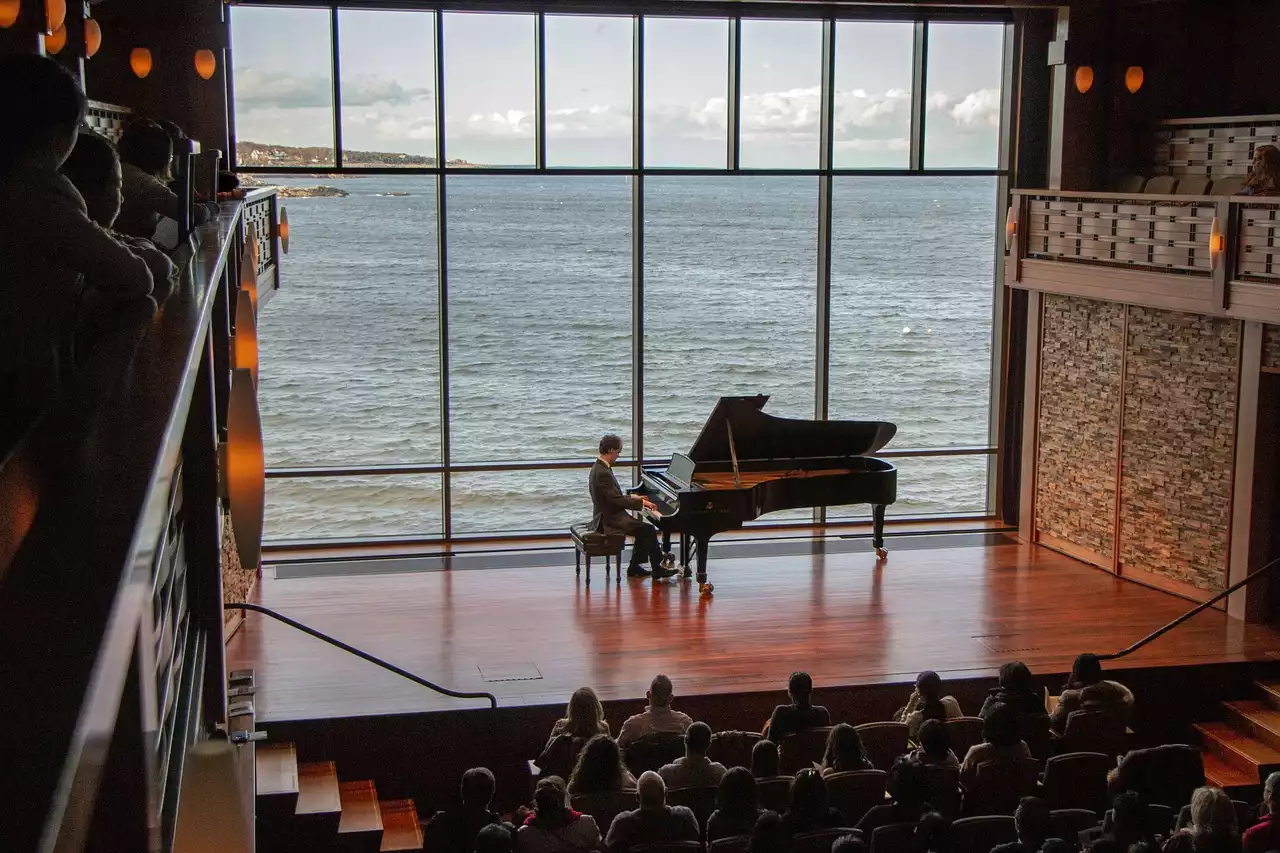The Early Years: From Reed Organs to Pianos
In the late 1800s, Yamaha began its foray into the world of music by manufacturing reed organs. These instruments, which use air passing through metal reeds to produce sound, were popular during that time. However, it wasn't until the early 1900s that Yamaha started producing pianos.
The company's founder, Torakusu Yamaha, recognized the growing demand for pianos and set out to create instruments that would revolutionize the industry. Yamaha's first piano, the "Yamaha U1," was introduced in 1900 and marked the beginning of their piano manufacturing journey.
Innovations and Breakthroughs
Throughout the years, Yamaha has continuously pushed the boundaries of piano technology, introducing numerous innovations and breakthroughs that have shaped the industry. One of their notable advancements was the introduction of the first upright piano with a full cast iron frame in 1902. This innovation greatly improved the stability and tonal quality of the instrument.
In 1967, Yamaha unveiled the world's first grand piano with a plastic key frame, revolutionizing piano construction. This breakthrough not only enhanced the durability of the instrument but also improved its overall performance.
Craftsmanship and Attention to Detail
One of the defining characteristics of Yamaha pianos is their exceptional craftsmanship. Every Yamaha piano is meticulously handcrafted by skilled artisans who pay attention to every detail. From selecting the finest materials to hand-voicing each instrument, every step in the manufacturing process is carried out with precision and care.
Yamaha's commitment to quality is further exemplified by their stringent quality control measures. Each piano undergoes rigorous testing to ensure that it meets the highest standards of sound, touch, and durability. This dedication to excellence has earned Yamaha a reputation for producing pianos that stand the test of time.
The Yamaha Sound
What sets Yamaha pianos apart from others is their distinctive sound. Yamaha employs a unique approach to sound creation, combining traditional craftsmanship with cutting-edge technology. The result is a sound that is rich, clear, and expressive.
Yamaha pianos are known for their balanced and versatile tone, making them suitable for a wide range of musical styles. Whether you prefer the warm and mellow tones of a classic piece or the bright and powerful sound of contemporary music, Yamaha pianos can deliver it all.
Innovative Features: CFX Binaural Sampling and Virtual Resonance Modeling
Yamaha continues to innovate and push the boundaries of piano technology. Two notable advancements in recent years are the CFX Binaural Sampling and Virtual Resonance Modeling.
The CFX Binaural Sampling is a revolutionary technology that recreates the immersive sound experience of playing a Yamaha CFX concert grand piano. By capturing the sound from multiple microphones placed around the instrument, Yamaha has created a virtual concert hall experience that can be enjoyed from the comfort of your own home.
Virtual Resonance Modeling, on the other hand, is a groundbreaking technology that replicates the intricate resonances and interactions of the strings, soundboard, and other components of a grand piano. This results in a more realistic and immersive playing experience, allowing pianists to explore a wide range of tonal possibilities.
The Yamaha Experience: A World of Musical Possibilities
Whether you're a professional pianist, an aspiring musician, or someone who simply appreciates the beauty of music, Yamaha pianos offer a world of limitless possibilities. With their exceptional craftsmanship, innovative features, and distinctive sound, Yamaha pianos have become a staple in concert halls, recording studios, and homes around the world.
Investing in a Yamaha piano means investing in a legacy of excellence and a lifetime of musical inspiration. Whether you choose a grand piano to make a bold statement or an upright piano for its versatility, Yamaha has a wide range of options to suit every need and skill level.
So, step into the world of Yamaha pianos and unlock your musical potential. Experience the beauty, precision, and innovation that have made Yamaha a trusted and respected name in the world of music. Discover the magic that happens when exceptional craftsmanship and innovation come together to create musical masterpieces. Yamaha pianos are not just instruments; they are gateways to a world of creativity, expression, and joy. Embrace the Yamaha experience and let your musical journey begin.



.png?size=50)



